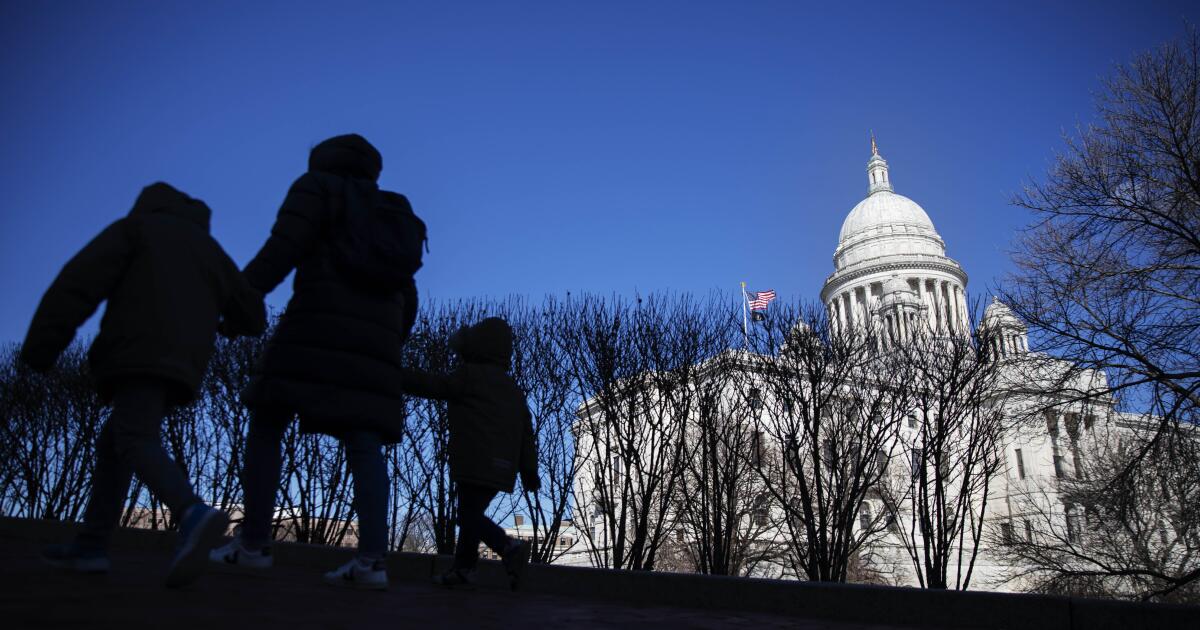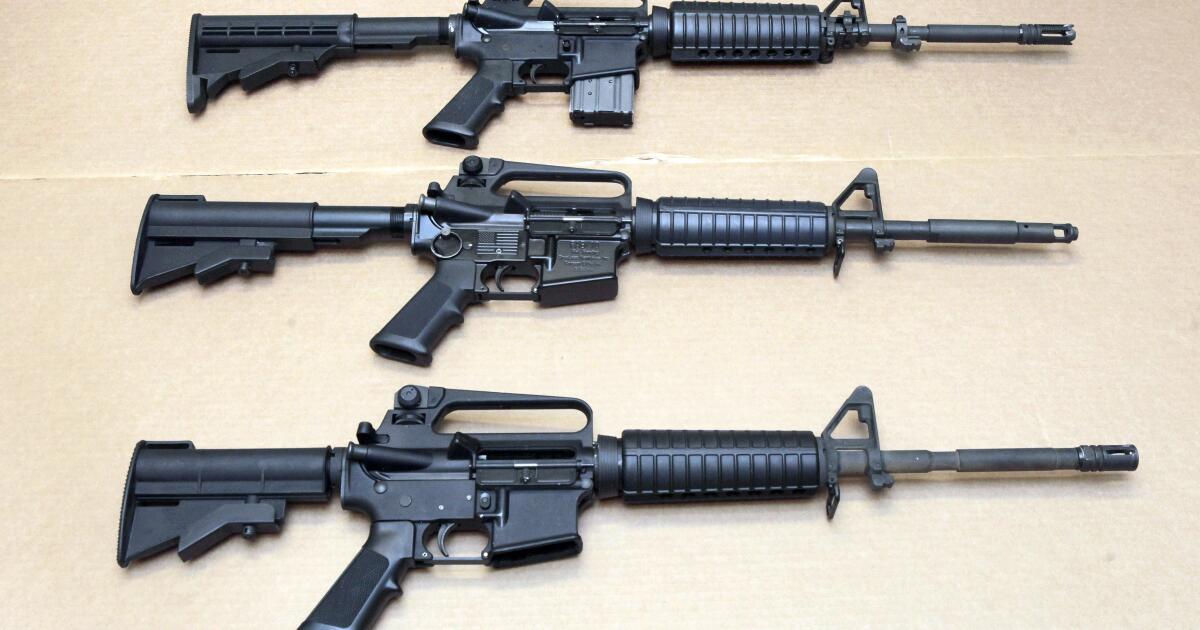Rhode Island lawmakers pass bill to ban sales of assault weapons
PROVIDENCE, R.I. — Rhode Island’s Democratic-controlled state House on Friday approved legislation that would ban the sale and manufacture of many semiautomatic rifles commonly referred to as assault weapons.
The proposal now heads to the desk of Democratic Gov. Daniel McKee, who has said he supports assault weapons bans. If the bill is signed into law, Rhode Island will join 10 other states that have some sort of prohibition on high-powered firearms that were once banned nationwide and are now largely the weapon of choice among those responsible for most of the country’s mass shootings.
Gun control advocates have been pushing for an assault weapons ban in Rhode Island for more than a decade. But despite being a Democratic stronghold, lawmakers throughout the country’s smallest state have long argued over the necessity and legality of such proposals.
The bill applies only to the sale and manufacturing of assault weapons and not possession. Only Washington state has a similar law. Residents looking to purchase an assault weapon from nearby New Hampshire or elsewhere will also be blocked. Federal law prohibits people from traveling to a different state to purchase a gun and returning it to a state where that particular of weapon is banned.
Nine states and the District of Columbia have bans on the possession of assault weapons, covering major cities including Los Angeles and New York. Hawaii bans assault pistols.
Democratic Rep. Rebecca Kislak described the bill during floor debates Friday as an incremental move that brings Rhode Island in line with neighboring states.
“I am gravely disappointed we are not doing more, and we should do more,” she said. “And given the opportunity to do this or nothing, I am voting to do something.”
Critics of Rhode Island’s proposed law argued Friday during floor debates that assault weapons bans do little to curb mass shootings and only punish people with such rifles.
“This bill doesn’t go after criminals, it just puts the burden on law-abiding citizens,” said Republican Sen. Thomas Paolino.
Republican Rep. Michael Chippendale, the House minority leader, predicted that if the legislation were to become law, the U.S. Supreme Court would deem it unconstitutional.
“We are throwing away money on this,” he said.
It wasn’t just Republicans who opposed the legislation. David Hogg — a gun control advocate who survived the 2018 school shooting in Parkland, Fla. — and the Rhode Island Coalition Against Gun Violence described the proposed ban as the “weakest assault weapons ban in the country.”
“I know that Rhode Islanders deserve a strong bill that not only bans the sale, but also the possession of assault weapons. It is this combination that equals public safety,” Hogg said in a statement.
Elisabeth Ryan, policy counsel at Everytown for Gun Safety, rejected assertions that the proposed law is weak.
“The weakest law is what Rhode Island has now — no ban on assault weapons,” Ryan said. “This would create a real, enforceable ban on the sale and manufacture of assault weapons, just like the law already working in Washington state, getting them off the shelves of Rhode Island gun stores once and for all.”
Nationally, assault weapons bans have been challenged in court by gun rights groups that argue the bans violate the 2nd Amendment. AR-15-style firearms are among the bestselling rifles in the country.
The conservative-majority Supreme Court may soon take up the issue. The justices declined to hear a challenge to Maryland’s assault weapons ban in early June, but three conservative justices — Samuel A. Alito Jr., Neil M. Gorsuch and Clarence Thomas — publicly noted their disagreement. A fourth justice, Brett M. Kavanaugh, indicated he was skeptical that the bans are constitutional and predicted the court would hear a case “in the next term or two.”
Kruesi writes for the Associated Press. AP writers David Lieb in Jefferson City, Mo., and Lindsay Whitehurst in Washington, D.C., contributed to this report.

